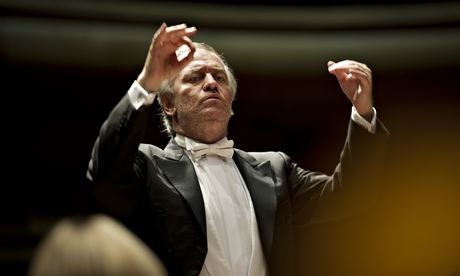
Valery Gergiev's three-concert sweep through the symphonies of Alexander Scriabin has proved to be one of the most rewarding and genuinely revelatory of his recent projects with the London Symphony Orchestra. Russian music from the end of the 19th century and the first decades of the 20th always brings out the best from him, and to hear rarely played works including Scriabin's Second and Third symphonies delivered with such authority was a particular treat.
As well as those pieces, the final pair of concerts also included Prometheus, the Poem of Fire, which is generally regarded as Scriabin's fifth and final symphony – so the evolution of his musical style, and its parallels with what was happening in western European modernism at the same time, were easy to follow. In fact the performance of Prometheus, transferring the darting, flickering world of Scriabin's late piano music on to a much bigger canvas, didn't quite come off. That is mainly because Denis Matsuev tackled the solo-piano part in such a prosaic, unsubtle way, but also because the entry of the London Symphony Chorus in the tumultuous final pages almost went unheard over the orchestra. Elsewhere, though in even the noisiest passages of the Second and Third, Gergiev managed to keep the LSO within sensible bounds, and the quality of the solo wind-playing was exceptional.
Both concerts also included early Messiaen – the orchestral version of L'Ascension and the remarkably precocious but much less often heard symphonic meditation, Les Offrandes Oubliées – played with appropriate, ritual intensity. Scriabin's early Chopinesque Piano Concerto would have fitted well into the season too, but instead there was some real Chopin, the F minor Concerto, with a real pianist, Daniil Trifonov (the winner of the 2011 Tchaikovsky Competition), to play it. Trifonov's performance was a marvel, a mixture of exuberance and fabulous subtlety, as remarkable for the delicate precision of his wispy pianissimos as for the irrepressible energy of its grandstanding rhetoric; for once, it seems, a piano competition really did come up with the right result.

